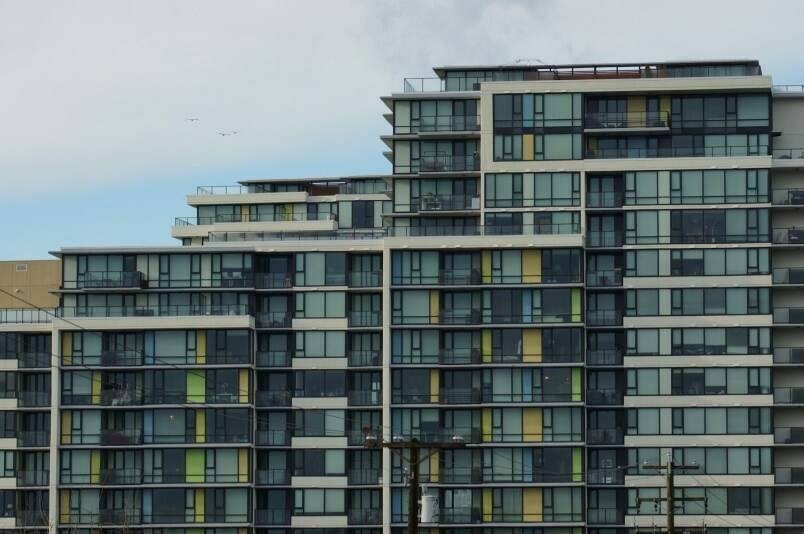Richmond will keep their current timelines for energy step code (ESC) and zero carbon code (EL) requirements after input from local developers.
In 2017, the provincial government adopted the energy step code into the BC building code with the goal of making new buildings net-zero by 2032. In 2018, Richmond became the first municipality to adopt these requirements.
Some local developers, however, are finding it challenging to meet these requirements due to cost constraints, according to a Sept. 19 staff report to council.
These "step codes" incrementally increase the energy efficiency of buildings, with level 5 being the highest for the energy code and level 4 being the highest for the zero carbon code.
Current city requirements consist of either having the highest energy code and a medium-low zero carbon code; having a medium-high energy code and a medium zero carbon code; or a medium-low energy code and the highest zero carbon code.
On Nov. 4, city council decided not to delay the current energy efficiency requirements for new single-detached and duplex homes, which require developers to match step code 5 and zero carbon code 3, or step code 4 and zero carbon code 4 in 2025.
By 2027, new buildings would have to take the next step and meet the highest requirement of energy code 5 and zero carbon code 4.
Several Richmond residents spoke at the council meeting – some asked for current requirements to be kept and others asked for them to be postponed.
Developers like Dana Westermark, principal at Richmond-based development firm Oris Consulting Ltd., asked city council to delay the current energy step code requirements to ease the construction of housing developments.
One of the biggest issues with the current energy step code system is not being able to use natural gas for heating and cooling, he told the Richmond News – these add complexity to construction and can sometimes delay housing getting to market.
Although heating systems such as air-to-air heat exchangers can be an economical way to heat homes, not having natural gas as an alternative is an inconvenience for households, Westermark explained.
Dealing with extreme cold or in a situation where the power is out for a period of time could be dangerous, he said. Furthermore, this could be troublesome during summertime if power grids become overwhelmed and air conditioning units fail.
Labour also comes into play, as added complexity also includes specialized expertise.
“One of the big things that we're running into in the industry generally is a shortage of people with training to do refrigerants,” said Westermark. “Sometimes it results in projects getting delayed… it adds time, which all translates to cost.”
Amid the housing crisis, obstacles that hinder housing from being built as quickly as possible shouldn’t be created. BC Hydro’s capacity will also be unable to cope with this massive hike in electrical power usage, he added.
“Hydro – they don't have the actual amount of energy,” said Westermark. “Site C is not on stream yet, and even when it comes on stream, it's a very short window before all of the capacity of Site C has been gobbled up.”
Highlighting the importance of a greener future, developers are on board with making buildings more energy efficient – however, the timing has to be in line with all the other pieces.
“There's going to have to be a major upgrade of the infrastructure in order to meet that demand,” he said.
“Until there's a plan to ensure that they have an adequate amount of power, I think it's poor planning to encourage people to develop systems that are totally reliant on electricity, when that electricity might not be available.”
Eva Jin, a Richmond resident and student, spoke before council on Nov. 4 prior to Westermark – advocating to maintain Richmond's current energy and zero carbon step codes and not delay the timeline.
Jin underscored the numerous effects of climate change to the environment and to physical and mental health – especially for younger generations.
"As a student in Richmond, I think about these issues everyday," said Jin. "Keeping the zero carbon step code is an important step towards a healthier, more sustainable Richmond."
By keeping this policy, the city can set an example and show leadership in protecting the environment, added Jin.
At the meeting, three options to delay the energy step code requirements were presented to council – none of these were chosen.
However, staff were directed to create policies that will allow council to consider some exceptions for new developments to have gas connections. These would be looked at on a case-by-case basis if BC Hydro cannot provide the electric service that is required.
Westermark asked city council to consider reverting the city’s current approach for detached and duplex homes and match the minimum BC Building Code requirements and timelines, however, city council decided to stay with the status quo.
Got an opinion on this story or any others in Richmond? Send us a letter or email your thoughts or story tips to [email protected]. To stay updated on Richmond news, sign up for our daily headline newsletter. Words missing in article? Your adblocker might be preventing hyperlinked text from appearing.
*Editor's note: This story has been modified since its original publication.



